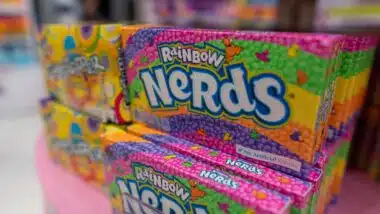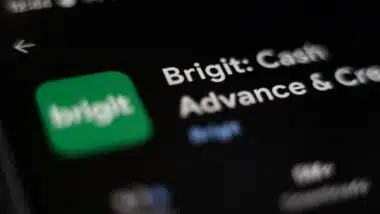 Walgreens childrens multivitamins may contain more folic acid than is healthy and recommended for the age range marketed to. This product is one among many gummies vitamins that have come under fire for allegedly understating their folic acid content.
Walgreens childrens multivitamins may contain more folic acid than is healthy and recommended for the age range marketed to. This product is one among many gummies vitamins that have come under fire for allegedly understating their folic acid content.
What is folic acid?
Folic acid is the synthetic form of folate, which is a form of vitamin B. This vitamin is used by the body to make new cells and aid in development.
A lack of folate can result in fatigue, irritability, diarrhea, poor growth, and a smooth and tender tongue. Risks of folic acid deficiency can include anemia and other low blood levels. In pregnant women, low folate may lead to neural tube defects.
Numerous conditions can cause folate deficiency, including:
- Digestive conditions that cause poor folic acid absorption (Crohn’s disease, Celiac disease, etc.);
- Drinking too much alcohol;
- Hemolytic anemia (not enough red blood cells);
- Kidney dialysis;
- Certain medications (phenytoin, sulfasalazine, trimethoprim-sulfamethoxazole);
- Eating an unhealthy diet; and
- Eating overcooked fruits and vegetables.
To make sure that individuals are getting enough folic acid, health professionals recommend that people eat a healthy, balanced diet. Folate can be naturally found in many foods, including:
- Veggies (asparagus, brussels sprouts, etc.);
- Dark green and leafy vegetables (spinach, etc.);
- Fruits and fruit juices;
- Nuts, beans, and peas;
- Eggs and dairy products:
- Seafood, poultry, and other meats; and
- Grains, especially any breads, cereals, flours, cornmeals, pastas, and rices fortified with additional folic acid per FDA regulations.
However, some people (especially pregnant women) may need to take additional folic acid in the form of a vitamin and this nutrient is often included in multivitamins regardless of any additional need.
Can you have too much folic acid?
Although it is not possible to ingest too much folate through dietary sources, it is possible to take too much folic acid through supplements.
Too much folic acid can have adverse side effects. The presence of too much folic acid can cover up the symptoms of a vitamin B12 deficiency, masking the symptoms and increasing the chance of permanent damage to the spinal cord, brain, and nerves. Excessive folic acid may also increase the risks of cancer, specifically colorectal cancer, lung cancer, and prostate cancer.
Symptoms of too much folic acid may include abdominal cramps, diarrhea, sleep disorders, irritability, confusion, nausea, stomach upset, behavioral changes, skin reactions, seizures, gas, excitability, and more.
Do Walgreens Childrens Multivitamins contain too much folic acid?
Consumers are concerned that Walgreens childrens multivitamins, which are intended for ages one to 13, may contain too much folic acid. According to the National Institute for Health’s Office of Dietary Supplements, folic acid guidelines state that children ages one to three should have 150 mcg of folate per day, children ages four to eight should have 200 mcg of folate per day, and children ages nine to 13 should have 300 mcg of folate per day.
Some vitamin companies may include additional folic acid to compensate for deterioration of the vitamin during storage, but consumers claim that some vitamins contain far too much folic acid to be safe for consumption.
Legal action has been taken against other companies from consumers alleging that certain products contain significantly more folic acid than is healthy. One lawsuit against Church & Dwight claimed that Vitafusion dietary supplements contain 1232 mcg of folic acid, far more than the 400 mcg listed on the product’s labeling.
Join a Free Walgreens Class Action Lawsuit Investigation
If you purchased Walgreens Multivitamin Children’s Gummies, you may qualify to participate in this excessive folic acid class action lawsuit investigation.
This article is not legal advice. It is presented
for informational purposes only.
ATTORNEY ADVERTISING
Top Class Actions is a Proud Member of the American Bar Association
LEGAL INFORMATION IS NOT LEGAL ADVICE
Top Class Actions Legal Statement
©2008 – 2026 Top Class Actions® LLC
Various Trademarks held by their respective owners
This website is not intended for viewing or usage by European Union citizens.















9 thoughts onDo Walgreens Childrens Multivitamins Contain Too Much Folic Acid?
Add me
please add me me and my grandchildren have both taken these
Wow please add me
I came across this article while seeking suits against folic acid. I believe my son had been overloaded withit the abilty to detoxify due to a gene mutation. This is a serious issue. My son had a fenrile seizure and many cognitive delays. I specifically removes him from a folic acid one year ago and he improved wihin a week. We used walgreens gummies for years. This needs be exposed so other parents can be warned.
Please add me. My children have a gene mutation that can’t convert folic acid and can lead to high homocysteine, etc. How dissappointing!
Sign me up
Please add me
Add me please